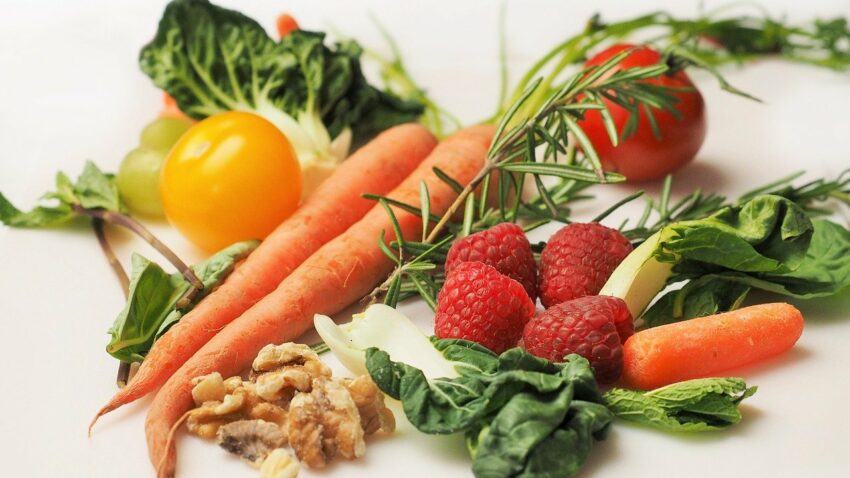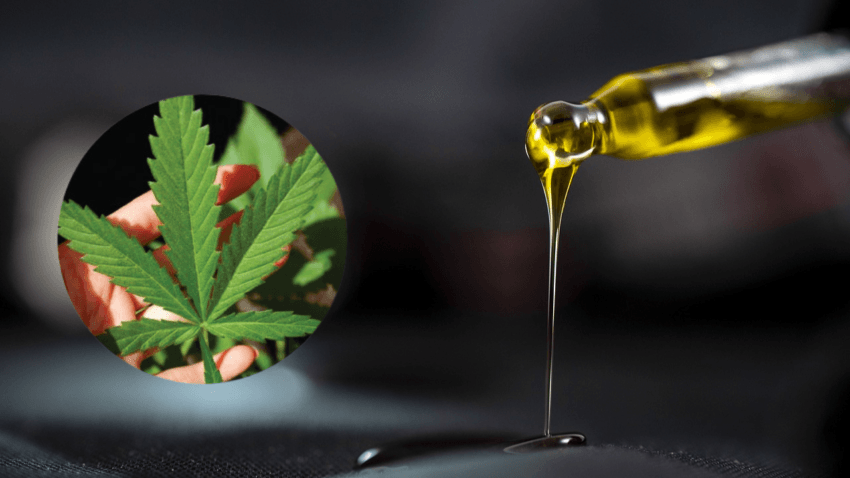In case you have not have noticed, antioxidant are a big buzzword right now and if you have, you may be wondering why…especially where CBD is concerned. What’s all the fuss about? Is CBD an antioxidant, and is it beneficial? Let’s jump in and find out.
What is an antioxidant?
Table of Contents
In medical terms, an antioxidant is a substance or compound that protects our cells (inhibits oxidation) from damage resulting from free radicals. Free radicals are associated with cancer, heart disease, stroke, and other age-related diseases.
Antioxidants are naturally produced by our bodies. They are also available in certain foods, such as fruits and vegetables, as vitamins C and E and certain minerals (copper, zinc, and selenium).

What are Free Radicals
Free radicals which occur naturally in the body are atoms or molecules with an odd number of electrons that occur when oxygen comes in contact with certain molecules.
These free radical toxins are a part of our everyday existence, entering the body through our foods, water, medications, and oxygen. A lifestyle that includes smoking, alcohol, excessive drugs, and a poor diet can also contribute to free radicals.
Because the electrons are odd or uneven, they search the body for other electrons to form a pair, which in turn damages the cells and proteins. This, in turn, results in many diseases associated with the aging process.
How do Antioxidants Work
So how do antioxidants work to protect us against free radicals? Antioxidants neutralize free radicals. What this means is that they give their own electrons to the free radicals. It’s like a switch that turns off the free radicals.
Eating a diet rich in antioxidants can help reduce the risk of certain diseases. Foods and beverages rich in antioxidants include blueberries, blackberries, raspberries, strawberries, apples such as Red Delicious and Granny Smith, dark leafy greens and other vegetables, seafood, meat, cranberries, some beans, pecans, russet potatoes, herbs (thyme, oregano), avocado oil, dark chocolate, green tea, black coffee, black tea, grapefruit juice, red wine (in moderation), and apple cider.
Supplements and CBD can also be beneficial.

CBD (Cannabidiol) is an Antioxidant
CBD is a phytocannabinoid (compound) that was first discovered in 1940. There are over 113 of these compounds in the cannabis plant, with CBD and THC (tetrahydrocannabinol) being two of the most common.
As early as the 1900s, researchers found that free radical damage was linked to several age-related diseases. Since then, there have been several studies and research projects on CBD as an antioxidant and/or anti-inflammatory (see resources below).
The United States government applied for a patent on CBD in 1999 as an antioxidant and received it in 2003.
Free radicals are the culprits responsible for inflammation in our bodies and can manifest themselves in several ways such as pain and swelling, tiredness, itchy skin, redness, stress, and diarrhea.
Benefits of Antioxidants in CBD
Here are some interesting and important medical facts about antioxidants:
- The phytocannabinoid CBD has several beneficial properties, including anti-inflammatory and antioxidant effects as well as anxiolytic, antidepressant, antipsychotic, and anti-convulsant properties
- According to the American Optometric Association (AOA), age-related macular degeneration can be reduced by up to 25% by antioxidants
- CBD as an antioxidant has a role in reducing the effects of blockage in the heart’s artery and restoration of blood flow, cardiac dysfunction as it relates to diabetes, and damage by strokes
- A study on piglets showed a reduction in brain HI-induced lung damage but it was unclear if it was due to the anti-inflammatory effects of CBD on the brain or the direct effects on the lungs
- Current research shows CBD is being considered in the treatment of diabetes, cardiovascular diseases, cancer, arthritis, anxiety, psychosis, epilepsy, neurodegenerative disease, and skin disease

How to Incorporate CBD Into Daily Wellness
It’s been said that it takes 28 days to form a habit. Whether you like to start your morning with your daily CBD or take it when you are ready for bed, once you make this part of your daily routine, it will become second nature.
There are several ways that you can make CBD part of your day. One of the easiest and most popular is ingesting it. Getting the correct amount, especially when you are a beginner, is important.
1) Under the tongue
CBD oil is quite simple to take. Place the amount needed under the tongue; it is recommended that you leave it there for 30–60 seconds to get the full benefits.
2) Edibles
This is another very popular way to take your CBD. For starters, the number of baked goods is limitless: brownies, cookies, gummies, and chocolates. Sweets aren’t the only foods, though. You can add it to your salad dressing, for instance, or a sauce you are making.
3) Waking up
If you find taking drops too much of a drag, then you can always drink it to start your day—in your coffee, tea, smoothie, or favourite beverage.
4) Topical care
Did you just get back from working out? Feeling achy? Then maybe a pre-workout or post-workout topical is all you need. Topicals aren’t just for pain, though. There are some great ones on the market for soothing and moisturizing the skin. A lot of companies now carry a line of products that include oils, creams, baths, and bath bombs for a relaxing and soothing bedtime bath.
5) Vaping
The beauty of vaping is that the effects are immediate as it reaches the bloodstream through the lungs. Maybe not a great way for a beginner. Vape pens are easy to use. If smoking gives you a sense of relaxation and calmness, then maybe vaping is for you.
6) Pill form
Capsules are convenient, easy to transport, and not messy. The main difference from taking an oil is that each capsule is in a particular dosage amount, so you know how much to take.
So now you have six different ways to consume CBD!
Tips for Consuming CBD
-
Which ones work faster
CBD Oil: Since everyone’s body chemistry is different, it can take between 15 and 45 minutes for CBD oil to take effect
Edibles: With edibles, it can take 45 minutes upwards of 2 hours to start feeling the effects
Topicals: You should start feeling relief around 15 minutes
Vapes: Since CBD is sent directly to the bloodstream through the lungs, the effects are almost immediate or shortly after
Capsules: Depending on your body chemistry, it could take 1 – 2 hours before you feel the effects
With any of these methods, you will notice a gradual change with consistent and routine use of the product.
-
Mix and match
If you have been using CBD for a while, you don’t have to stick to one method. Maybe you are happy taking the oil every day, but maybe it is more convenient for you to take oil in the morning, a topical in the afternoon, and maybe a capsule at night. Or maybe you just want to consume edibles.
It really is all about your desires, the results you want to achieve, and the total amount of CBD you want to consume each day. You can also use small doses throughout the day to reach your maximum amount.
For example, my husband takes CBD oil in the morning and then an edible at night.
-
Figuring out dosage
As we mentioned earlier, your body characteristics have a lot to do with the proper dosage—weight, what you are using CBD for, and how much CBD is in your method.
A medical professional or CBD expert can help you achieve the right amount for you.
It is suggested that you start out gradually, especially if you are a beginner. Take it slowly in the beginning with a low serving size. One rule of thumb is 1 mg of CBD for every 20 pounds, so a 100-pound person could take 5 mg to start with.
If you are not achieving the desired results, then you can increase the amount you are taking.
-
When to take CBD
Should you take CBD in the morning or at night? That’s a good question. As a beginner, you could start at night, and if sleepiness occurs, you will know that it is going to help at bedtime. If, on the other hand, you are not bothered, you might want to take it in the morning to help you have an energetic and relaxing day.
Some people take it in the morning and at night. For instance, when I first started taking CBD for pain, I would take a dose in the morning and then another one at night.
-
Ask a Medical Professional
It is always advisable to consult a medical professional when making a significant change in your health regimen. Don’t be afraid to ask questions. If your doctor can’t or won’t help you, ask for a referral if at all possible.
If you need more information, then Google it. There is a ton of information available.
Resources
- Antioxidative and Anti-Inflammatory Properties of Cannabidiol (H3), January 2020
- Antioxidant and Anti-inflammatory Effect of Cannabidiol, February 2021
- A Comparison of Antioxidant Potential, Total Phenolic Content, and Cannabidiol (CBD) Content of Cannabis-Infused Hemp, MCT, and Olive Oils
- Is the cardiovascular system a therapeutic target for cannabidiol?
- Cannabidiol reduces lung injury induced by hypoxic-ischemic brain damage in newborn piglets, May 2017
MEDICAL DISCLAIMER
FDA DISCLOSURE
Mary Ann shares her passion and personal experience with CBD and medical cannabis as well as the experiences of others. Do visit regularly to find out the ins and outs of CBD and medical marijuana products. If you are passionate about something and would love to share it on your own website, then click here to get started.
